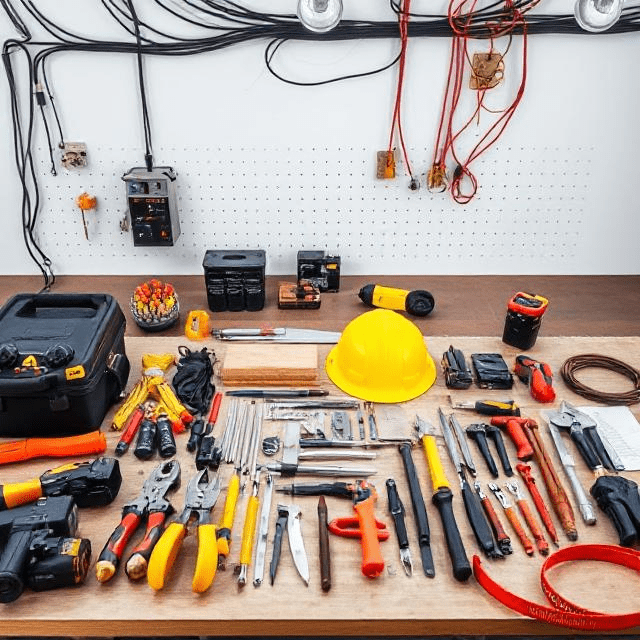Understanding Generator Capacity: What Size Do You Need?
Introduction
In today's world, power outages can interrupt our daily lives and disrupt our comfort. Whether it’s a storm knocking out the grid or a planned outage for maintenance, having a reliable backup power source can make all the difference. This is where generators come into play. However, not all generators are created equal; determining the right size for your needs can be a daunting task. In this comprehensive guide, we’ll delve deep into understanding generator capacity and help you answer the crucial question: what size do you need?
Understanding Generator Capacity: What Size Do You Need?
When we talk about generator capacity, we're referring to how much electricity a generator can produce, typically measured in watts. The capacity directly influences which appliances and systems you can power during an outage. So, how do you decide on the right size?
What is Generator Capacity?
Generator capacity refers to the maximum amount of electricity that a generator can produce at any given time. This is usually expressed in watts (W) or kilowatts (kW). It's essential to know your household's total wattage requirements to choose an appropriately sized generator.
Why Does Size Matter?
Choosing the right size matters for several reasons:
Types of Generators Available
Portable Generators
Portable generators provide flexibility and are ideal for short outages or outdoor activities. They are easy to transport, but they often have limited capacity.
Standby Generators
Standby generators are permanently installed outside your home and automatically turn on during an outage. They typically provide more power and are designed for whole-house applications.
Whole House Generator Installers Near Me
Finding qualified "whole house generator installers near me" is crucial when considering a standby system.
Calculating Your Power Needs
Identify Essential Appliances
Start by listing all essential appliances you want to power during an outage—refrigerators, HVAC systems, lights, etc.
Total Wattage Calculation
Next, calculate the total wattage required:
- Use the appliance’s wattage rating (usually found on a label).
- Add up the starting and running watts for each appliance.
Starting vs Running Watts
- Starting Watts: The initial surge of energy required to start most motors.
- Running Watts: The energy needed to keep those devices operating after they’re powered on.
Common Household Items Wattage Guide
| Appliance | Starting Watts | Running Watts | |---------------------------|----------------|---------------| | Refrigerator | 1,200 | 800 | | Central Air Conditioner | 4,500 | 3,000 | | Electric Oven | 3,000 | 2,400 | | Lights | 300 | 300 |
This table serves as a quick reference while calculating your needs.
Generator Sizing Formula
A simple formula can help determine the required generator size:
[ \textRequired kW = \frac\textTotal Running Watts + \textTotal Starting Watts1000 ]

For example:
- If your total running wattage is 5,000W and starting wattage totals 2,500W,
[ \textRequired kW = \frac5,000 + 2,5001000 = 7.5 kW ]
Selecting the Right Type of Generator Based on Needs
For Emergency Backup Power
If you're looking for emergency backup power for your entire home during prolonged outages:
- A whole house generator is advisable.
- Consult with "generator installation companies" for tailored options.
For Recreational Use or Small Outages
If you only need power occasionally or for specific tools:
- A portable generator would suffice.
Installation Considerations for Generators
Hiring Qualified Professionals
When considering installation:
Whole Home Generator Installation Near Me
Searching online using “whole home generator installation near me” will yield results of nearby professionals who understand local codes and regulations.
Maintenance Tips for Longevity
To ensure your generator runs smoothly when needed:
FAQs About Generator Size and Installation
Q1: How do I know if my generator is big enough?
A: Calculate total wattage as discussed earlier; consult with professionals if electrician Indian Trail NC https://ewingelectricco.com/residential-electrical-services/whole-house-generator-installation/ unsure.
Q2: Can I install my own generator?
A: While DIY installations are possible for portable generators, it's best practice to hire licensed "home generator installers" for standby units due to safety codes.
Q3: How much does it cost to install a whole house generator?
A: Costs vary widely based on size and complexity but generally range from $5,000 to $15,000 including installation fees.
Q4: How long does installation take?
A: Typically between one day to several days depending on permits and complexity.
Q5: Do I need a permit for installation?
A: Yes! Local codes often require permits for permanent installations; check with local authorities first.


Q6: How often should I run my standby generator?
A: It’s recommended to run it every month under load conditions to ensure functionality during emergencies.
Conclusion
Understanding Generator Capacity is essential in making informed decisions regarding backup power solutions tailored to your needs. Whether you're navigating through options with "whole home generator installers near me" or evaluating "generator installers," having clarity on capacity helps ensure that you're prepared when outages occur. Remember—the goal is not just having a backup plan but ensuring that plan operates efficiently when called upon! Regular maintenance and professional guidance will go a long way in extending the life of your investment in security against unexpected power losses.
By approaching this topic with careful consideration of your specific needs while keeping informed about local resources such as “generator installation near me,” you’ll find yourself better equipped against sudden blackouts—now isn’t that peace of mind worth planning ahead?